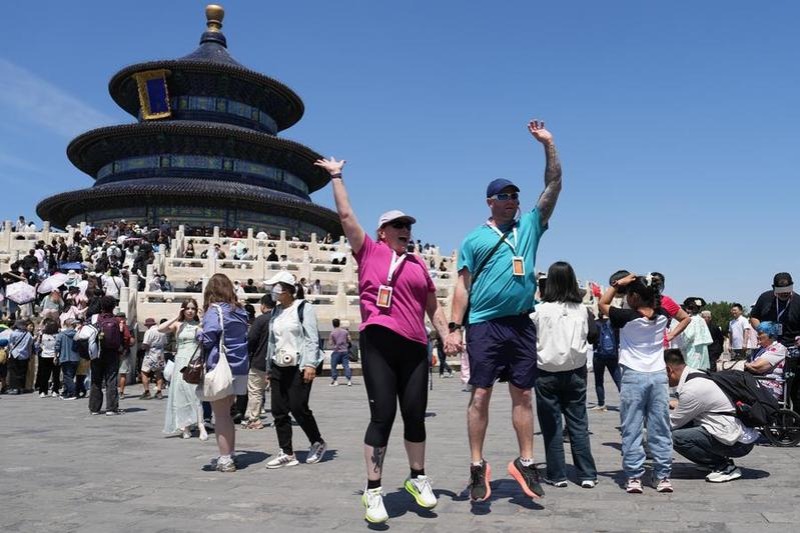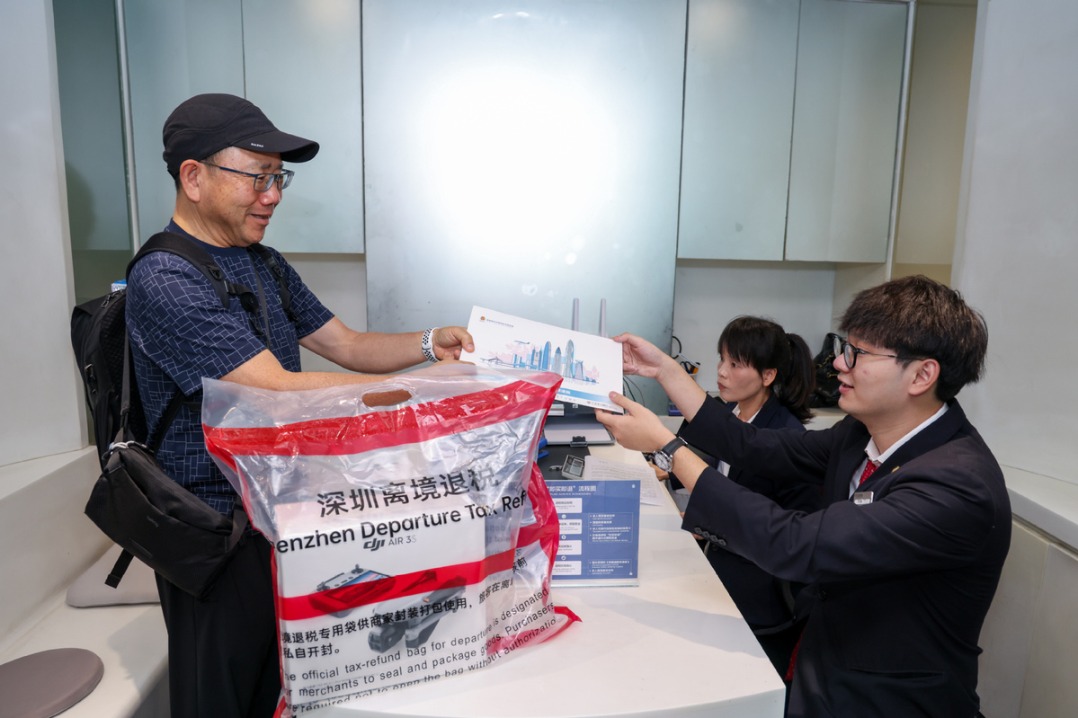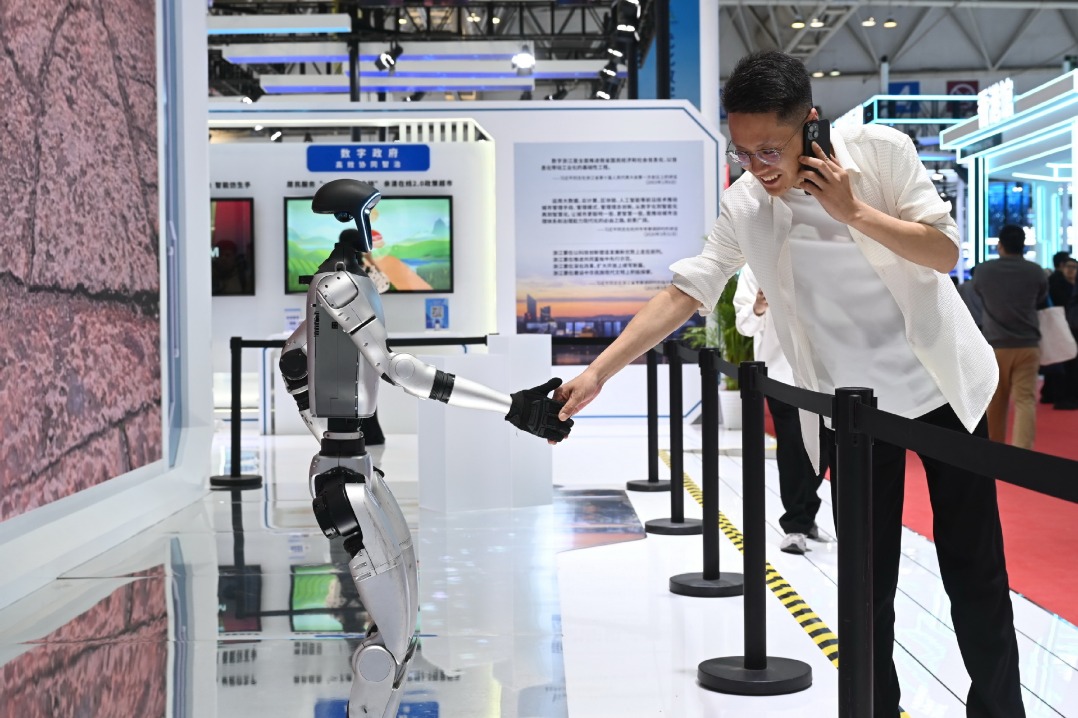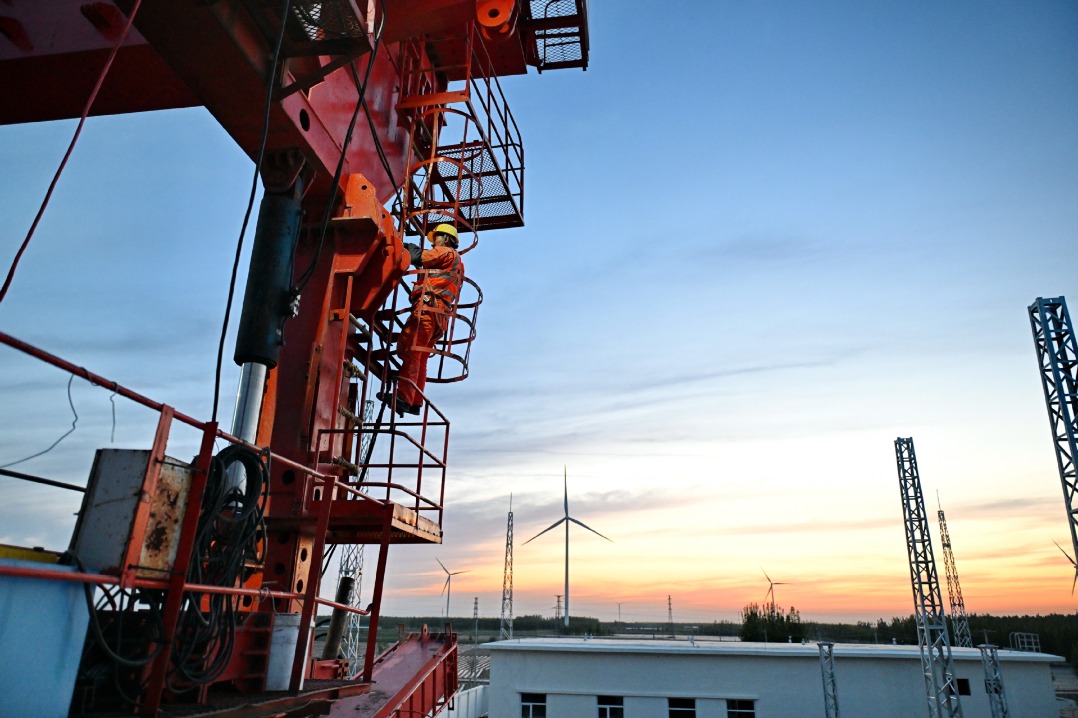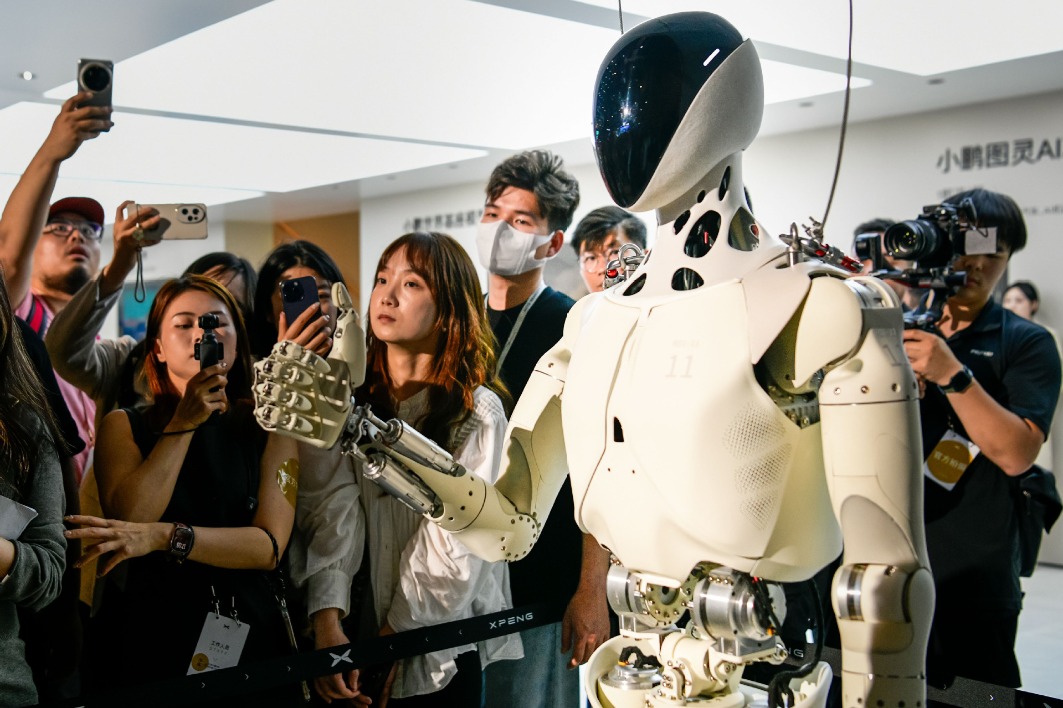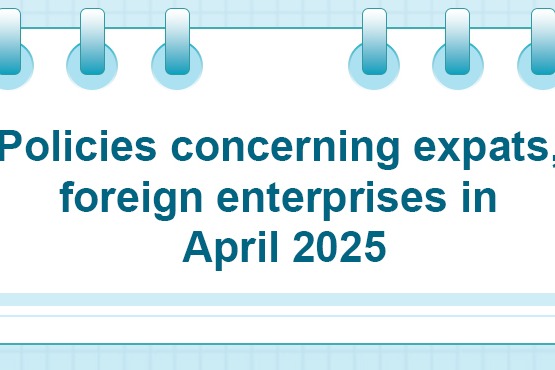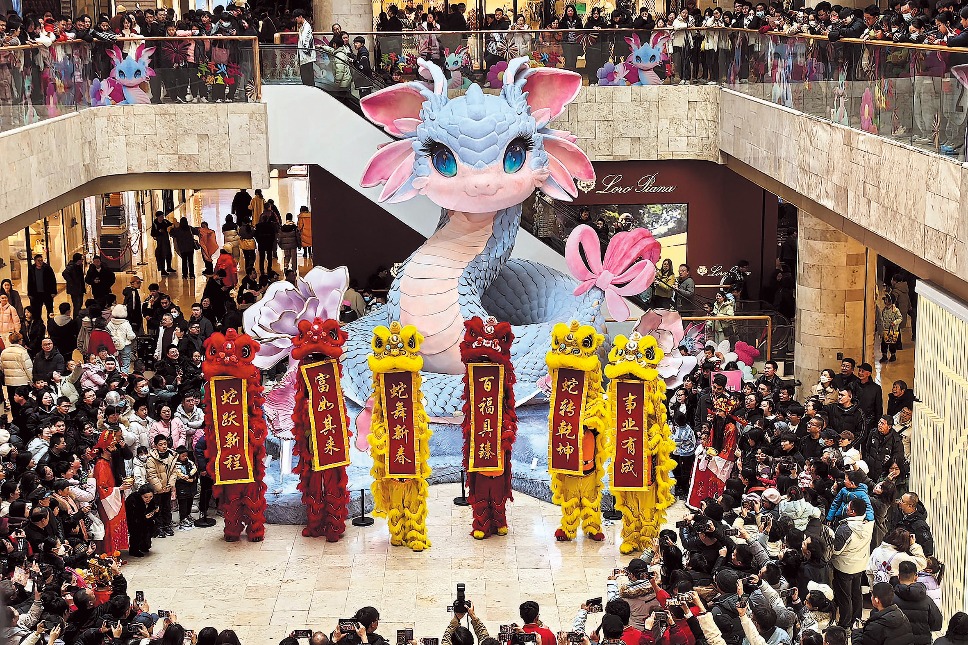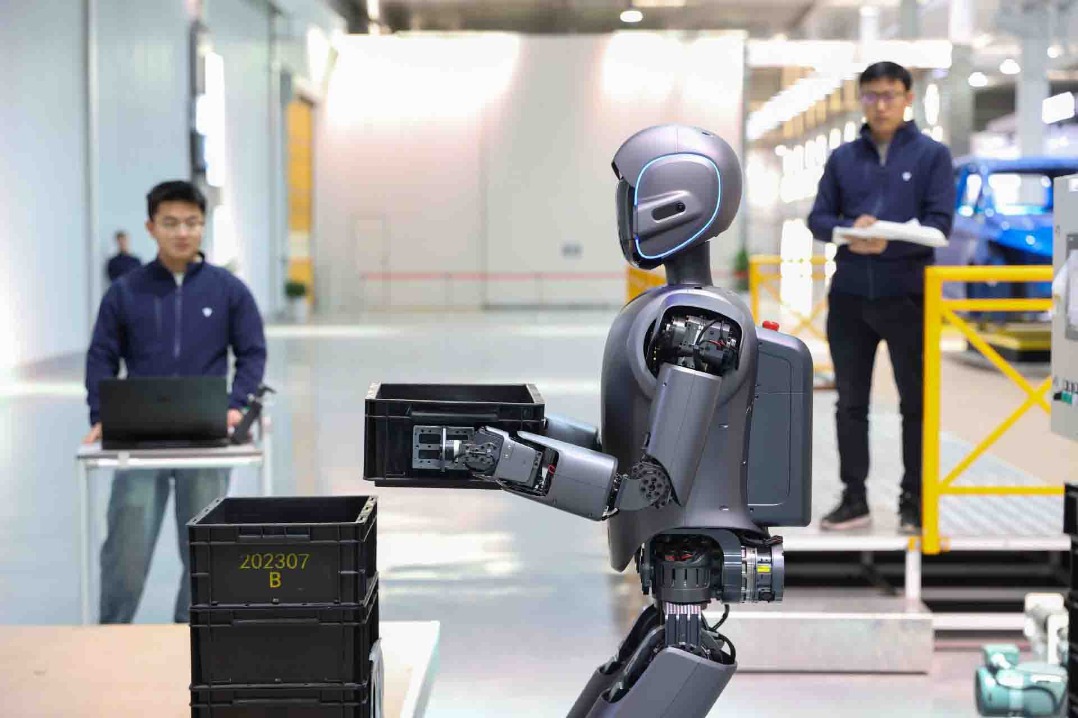Buffett, Cook stress dangers of new US tariff policy

Billionaire investor Warren Buffett and Apple CEO Tim Cook have joined a chorus of business leaders warning against Washington's tariff-driven trade policies, highlighting that they are inflating costs for companies in the United States and harming economic growth.
Their remarks show that even large corporations with diversified supply chains, like Apple, are feeling the strain, while smaller US enterprises reliant on imports face bigger risks, industry experts said.
"Trade should not be a weapon," Buffett, the chairman and CEO of Berkshire Hathaway, told the company's annual shareholders meeting on Saturday in Omaha, Nebraska.
"It's a big mistake, in my view, when you have seven and a half billion people that don't like you very well, and you got 300 million that are crowing in some way about how well they've done — I don't think it's right, and I don't think it's wise," said Buffett.
He said tariffs had "led to bad things".
"Just the attitudes it's brought out. In the US, I mean, we should be looking to trade with the rest of the world and we should do what we do best and they should do what they do best," Buffett said.
He emphasized that US prosperity hinges on global economic health.
"I do think that the more prosperous the rest of the world becomes, it won't be at our expense, the more prosperous we'll become, and the safer we'll feel and your children will feel someday," he added.
The remarks followed data showing that the US economy contracted for the first time in three years, swamped by a flood of imports as businesses raced to avoid higher costs from tariffs.
The US GDP decreased at an annualized rate of 0.3 percent in the first quarter of 2025 compared with the preceding quarter, marking the first decline in three years, said Reuters, quoting a report from the US Commerce Department.
Cook from Apple revealed on Thursday that tariffs could add $900 million to the US tech company's costs this quarter.
"Assuming the current global tariff rates, policies, and applications do not change for the balance of the quarter and no new tariffs are added, we estimate the impact to add $900 million to our costs," he told a quarterly earnings call.
About 90 percent of Apple's iPhone, its most profitable product, is produced in China, according to estimates by the Los Angeles-based financial services firm Wedbush Securities.
Bai Ming, a researcher at the Chinese Academy of International Trade and Economic Cooperation in Beijing, said the "America First" approach has backfired, with tariffs raising input costs for manufacturers, squeezing consumer prices, and eroding business confidence.
"The tariffs hit the US companies very hard. It is ultimately American consumers that pay the extra bill," Bai added.
Jeffrey Sachs, a world-renowned professor of economics and director of the Center for Sustainable Development at Columbia University, told China Daily that Washington's tariff policy is "destructive for the United States and disruptive for the world".
"Protectionism will fail and increasingly isolate the US in the world economy and politics. There are few countries that will accept Trump's approach, even in Europe," Sachs added.
















